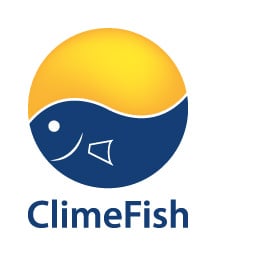How Climate Change Affect the Ocean
The seas and oceans are heavily affected by climate changes, and we are only beginning to understand the magnitude of these changes.
All marine and aquatic invertebrates (molluscs, crustaceans, worms etc.) and fish are poikilotherms, meaning their internal temperature varies directly with that of their environment. This makes them very sensitive to changes in the temperature of their surrounding environment.

Temperature increase in the ocean are leading to fish stocks moving north to cooler waters, e.g. seabass from warmer waters are now commonly caught in Scotland and Norway. Fish species adapted to cold waters are particularly vulnerable to climate warming as they experience unfavourably high temperatures in the southernmost reaches of their distributions. Fish species seeking cooler waters, swimming to the north, has been called poleward expansion and is one of the most studied consequences of warmer ocean temperatures.
Warming may improve growth conditions of aquatic organisms to some extent, but will also favour colonization by invasive species that can threaten the native populations. In addition, new parasites and diseases will arise, symbiotic realations amongst organsisms will alter and whole ecosystems will change.
In the Mediterranean, the average temperature is rising by 0.5°C each decade and more intense weather events, like storms and heat waves, are hindering the predictability of productivity in agriculture and aquaculture. The Baltic Sea appears to be warming at a rate of 6-8°C/century. One significant consequence of this has been the rise in bacterial diseases like the vibrio gastro-intestinal infections, in fish.
The acidity of the Atlantic Ocean has increased by 30% since the start of the industrial era and is expected to continue to increase, perhaps to as low as 7.6 by 2100. This affects many marine organisms and particularly the capacity of molluscs to fix calcium in their shells (e.g. mussels and oysters) and corals to grow. Fish are also affected, acidic water cases disorientation, altered metabolism and reduced robustness. Unfortunately, it seems that the negative effects caused by either more acidic or warmer water is further enhanced by each other, but studies are still scares.
Climate change is inevitably a challenge for fisheries and aquaculture, in both fresh and salt waters. Below you can read more about specific impacts in each of the three sectors investigated by ClimeFIsh:
